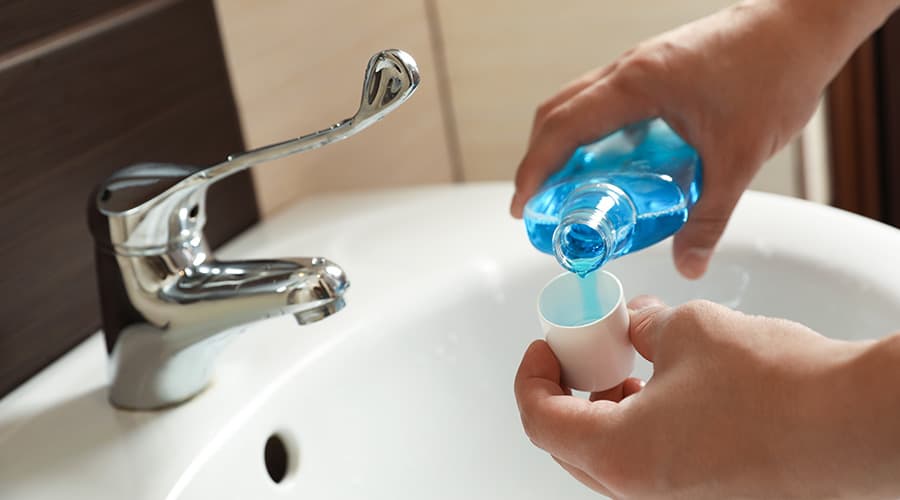
A new study from the University of Plymouth (UK) evaluated pH levels, other factors aggravated by regular use of mouthwash
The first study looking at the effect of chlorhexidine mouthwash on the entire oral microbiome has found its use significantly increases the abundance of lactate-producing bacteria that lower saliva pH, and may increase the risk of tooth damage.
A team led by Dr. Raul Bescos from the University of Plymouth’s Faculty of Health gave a placebo mouthwash to subjects for seven days, followed by seven days of a chlorhexidine mouthwash.
At the end of each period, the researchers carried out an analysis of the abundance and diversity of the bacteria in the mouth — the oral microbiome — as well as measuring pH, saliva buffering capacity (the ability to neutralise acids in the mouth), lactate, glucose, nitrate and nitrite concentrations.
Related: Dental Unit Waterline Contamination: Causes, Concerns, 3rd edition
Mouthwash and bacteria
The research, published in Scientific Reports today, found using chlorhexidine mouthwash over the seven days led to a greater abundance of species within the families of Firmicutes and Proteobacteria, and fewer Bacteroidetes, TM7 and Fusobacteria. This change was associated with an increase in acidity, seen in lower salivary pH and buffering capacity.
Overall, chlorhexidine was found to reduce microbial diversity in the mouth, although the authors cautioned more research was needed to determine if this reduction in diversity itself increased the risk of oral disease.
One of the primary roles of saliva is to maintain a neutral pH in the mouth, as acidity levels fluctuate as a result of eating and drinking. If saliva pH gets too low, damage can occur to the teeth and mucosa.
Nitrate, nitrite, and blood pressure
The research also confirmed findings from previous studies. These found that chlorhexidine disrupted the ability of oral bacteria to turn nitrate into nitrite, a key molecule for reducing blood pressure. Researchers found lower saliva and blood plasma nitrite concentrations after using chlorhexidine mouthwash. This followed a trend of increased systolic blood pressure.
The findings supported earlier University research that showed that people rinsing their mouths with antibacterial mouthwash rather than water significantly reduces the blood pressure-lowering effect of exercise.
Dr. Zoe Brookes and Dr. Louise Belfield, Lecturers in the Peninsula Dental School at the University of Plymouth, co-authored the study. “We have significantly underestimated the complexity of the oral microbiome and the importance of oral bacteria in the past,” said Dr. Belfield. “Traditionally the view has been that bacteria are bad and cause diseases.”
Dr. Brookes added, “In the face of the recent COVID-19 outbreak many dentists are now using chlorhexidine as a pre-rinse before doing dental procedures. We urgently need more information on how it works on viruses.”





